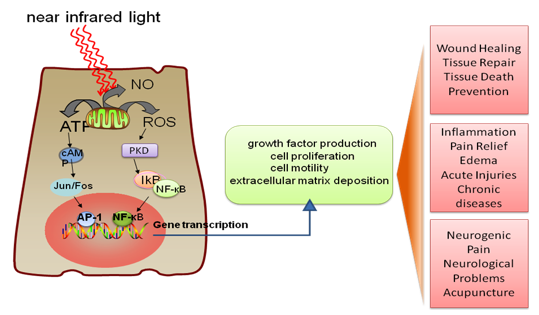Well, I just became aware of Dr. Bredesen's work (thanks to SciLi on reddit)...but these are almost exactly the same (theoretical) conclusions I've come to after extensive experimentation. Here's the applicable thread. https://www.reddit.c...ws_reversal_of/
I'm aiming at supranormal cognition so I'm a bit more aggressive with pharmaceuticals than he is with his patients but I would strongly recommend reading his work!
Also, check out The God Stack which displays a very similar approach (note The Big Six (diet, exercise, sleep, meditation, fasting, and standing) mentioned at the bottom of the post). http://www.lostfalco.com/tgs/
The Genesis Protocol also employs a very similar strategy.
Bredesen's approach is a (fairly) comprehensive one from a large number of angles simultaneously. I would change a few things (we could nitpick all day) and I'm not endorsing everything but this is pretty freaking cool!
Make sure you check out the table I attached below which summarizes (very nicely) the program followed by one of the patients.
http://www.impactagi...ull/100690.html
Reversal of cognitive decline: a novel therapeutic program.
Abstract
This report describes a novel, comprehensive, and personalized therapeutic program that is based on the underlying pathogenesis of Alzheimer's disease, and which involves multiple modalities designed to achieve metabolic enhancement for neurodegeneration (MEND). The first 10 patients who have utilized this program include patients with memory loss associated with Alzheimer's disease (AD), amnestic mild cognitive impairment (aMCI), or subjective cognitive impairment (SCI). Nine of the 10 displayed subjective or objective improvement in cognition beginning within 3-6 months, with the one failure being a patient with very late stage AD. Six of the patients had had to discontinue working or were struggling with their jobs at the time of presentation, and all were able to return to work or continue working with improved performance. Improvements have been sustained, and at this time the longest patient follow-up is two and one-half years from initial treatment, with sustained and marked improvement. These results suggest that a larger, more extensive trial of this therapeutic program is warranted. The results also suggest that, at least early in the course, cognitive decline may be driven in large part by metabolic processes. Furthermore, given the failure of monotherapeutics in AD to date, the results raise the possibility that such a therapeutic system may be useful as a platform on which drugs that would fail as monotherapeutics may succeed as key components of a therapeutic system.
http://www.impactagi...ull/100690.html
"3) Just as for other chronic illnesses such as osteoporosis, cancer, and cardiovascular disease, the underlying network features a threshold effect, such that, once enough of the network components have been impacted, the pathogenetic process would be halted or reversed. Therefore, even though it is not expected that most patients will be able to follow every single step of the protocol, as long as enough steps are followed to exceed the threshold, that should be sufficient."
Patient one: therapeutic program
As noted above, and following an extended discussion of the components of the therapeutic program, the patient began on some but not all of the system: (1) she eliminated all simple carbohydrates, leading to a weight loss of 20 pounds; (2) she eliminated gluten and processed food from her diet, and increased vegetables, fruits, and non-farmed fish; (3) in order to reduce stress, she began yoga, and ultimately became a yoga instructor; (4) as a second measure to reduce the stress of her job, she began to meditate for 20 minutes twice per day; [5] she took melatonin 0.5mg po qhs; (6) she increased her sleep from 4-5 hours per night to 7-8 hours per night; (7) she took methylcobalamin 1mg each day; (8) she took vitamin D3 2000IU each day; (9) she took fish oil 2000mg each day; (10) she took CoQ10 200mg each day; (11) she optimized her oral hygiene using an electric flosser and electric toothbrush; (12) following discussion with her primary care provider, she reinstated HRT (hormone replacement therapy) that had been discontinued following the WHI report in 2002; (13) she fasted for a minimum of 12 hours between dinner and breakfast, and for a minimum of three hours between dinner and bedtime; (14) she exercised for a minimum of 30 minutes, 4-6 days per week.
Edited by lostfalco, 16 June 2016 - 05:36 PM.





























































